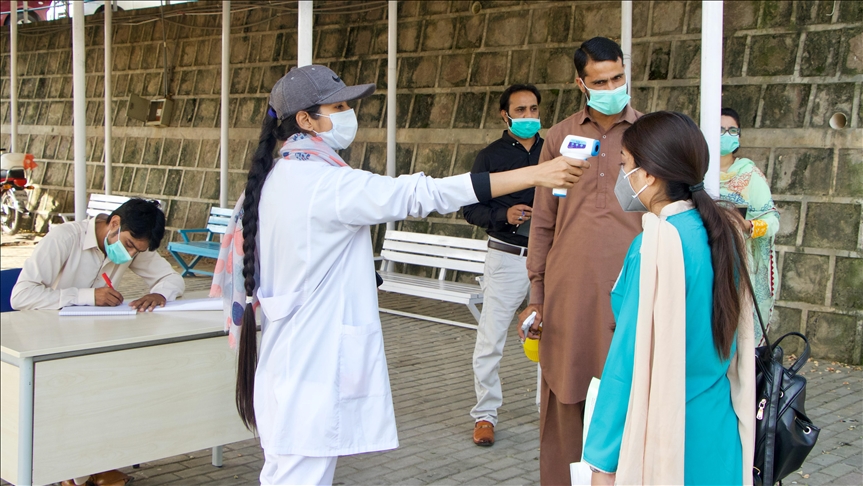KARACHI, PAKISTAN
Pakistan on Wednesday announced it is completely lifting the coronavirus restrictions, allowing all commercial activities across the country to operate normally and reopening public places, despite the country still reporting over 1,000 virus cases daily.
The time-limit for shopping centers, markets, and amusement parks have been lifted with immediate effect, whereas indoor dining and wedding ceremonies will be permitted from March 15, according to a statement from the National Command and Operation Center, which monitors the country’s anti-virus strategy.
Cinemas and shrines will also reopen with “stringent COVID-19 safety precautions” from March 15.
The condition of 50% work from home has also been removed forthwith.
“Wearing of mask, social distancing, and smart lockdowns will continue,” the statement said.
The decisions, the statement said, can be reviewed whenever deemed necessary.
The long-pending local bodies elections might be planned by the Election Commission by the end of May or early June, it added.
Spectators’ attendance in the ongoing cricket league — Pakistan Super League — has been increased from 205 to 505 for pool matches, whereas full attendance will be allowed for play-offs with stringent “COVID-19 safety precautions” in the second week of March.
The South Asian nation of over 200 million people has witnessed a significant drop in virus cases and deaths in recent weeks. However, it is still reporting over 1,000 daily cases, in addition to dozens of deaths.
With 1,196 fresh cases recorded on Wednesday, the country’s overall caseload has reached 574,580. Some 12,708 people have lost their lives due to the coronavirus since March 2020.
Islamabad has already begun the much-awaited vaccination campaign. In the first phase, frontline health workers and those above 65 years of age are being inoculated.
Last month, the government announced securing 17 million doses of the vaccine developed by Oxford-AstraZeneca through the UN-led COVAX initiative.
The country’s drug regulator has so far approved emergency use of China’s Sinopharm and CanSino, Oxford-AstraZeneca, and Russia’s Sputnik vaccine.

